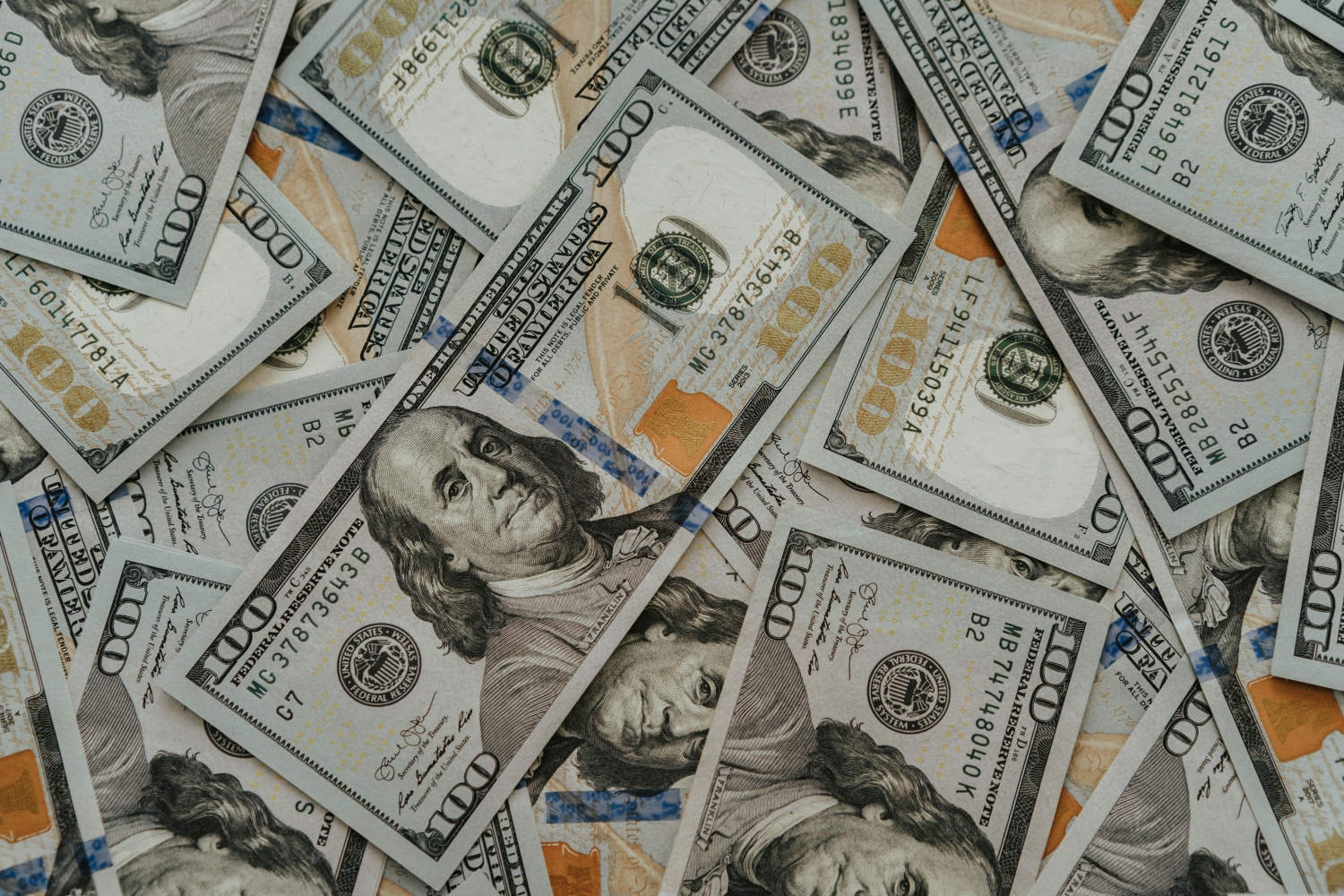
(Photo : Pexels)
US Dollars
- The U.S. dollar surged after Trump announced tariffs on imports from Canada, Mexico, and China.
- The Canadian dollar rose against the Mexican peso, indicating Mexico might be hit hardest.
- Trump's tariff plan includes a 25% tariff on all products from Mexico and Canada, and an additional 10% on goods from China.
- The dollar's strength affected gold, which dipped to a one-week low, while Bitcoin rose 1%.
The U.S. dollar experienced a significant surge following President-elect Donald Trump's announcement of imposing tariffs on all imports from Canada and Mexico, along with additional tariffs on China. This unexpected move by Trump led to a retreat in stocks, reversing some of the robust gains from the previous session. The previous session had seen a boost in stocks, buoyed by the nomination of fund manager Scott Bessent as Treasury Secretary.
Bessent's appointment was viewed favorably by investors, who saw him as a voice for Wall Street in Washington. This led to a sharp fall in U.S. yields as investors scooped up Treasury bonds, causing the dollar to slide. However, Trump's tariff announcement seemed to be a reminder to the markets of who was in control. As Matt Simpson, a senior market analyst at City Index, put it, It's almost as if Trump wants to remind markets who is in control, after nominating Scott Bessent as Treasury Sec - a man markets expected to cool Trump's potency.
Impact on Global Currencies and Stocks
The impact of Trump's announcement was felt across various currencies. The Canadian dollar rose against the Mexican peso, leading markets to assume that Mexico would be hit the hardest. The dollar jumped 1.6% to 20.6000 Mexican pesos and climbed 1% to C$1.4132. It also strengthened 0.2% to 7.2628 yuan in offshore trading, reaching its highest since late July. Australia's risk-sensitive dollar, which tends to reflect the outlook for top trading partner China, slumped 0.5% to $0.6474.
Sean Callow, a senior FX analyst at ITC Markets, commented on Trump's tariff intentions, It was just last month that Trump said that 'the most beautiful word in the dictionary is tariff', so there really should not have been a surprise in Trump's intention, just in the timing of the comments. The tariff announcement also had a significant impact on the stock markets. Japan's Nikkei dropped 1.2%, giving back most of Monday's gains, as investors contemplated the risks of tariffs on the nation's many heavyweight exports, particularly automakers. Toyota slid 2% and Nissan tumbled 4%.
Trump's Tariff Plan and Its Implications
Trump's tariff plan includes a 25% tariff on all products from Mexico and Canada, and an additional 10% tariff on goods from China, citing concerns over illegal immigration and the trade of illicit drugs. Trump has previously pledged to end China's most-favored-nation trading status and slap tariffs on Chinese imports in excess of 60%. Gary Ng, a senior economist at Natixis, commented on the impact of the tariffs on Chinese assets, It's definitely a shock to the market and weighing on Chinese assets, especially the export sectors. But compared to what he imposed on Canada and Mexico, the magnitude (of the Chinese tariff) is not that big, so investors might still want to see what are the follow- ups and when/if the 60% promised will actually come through.
In the wake of Trump's tariff remarks, the dollar edged down 0.1% to 154.04 yen, after initially strengthening. The dollar-yen pair tends to track long-term U.S. Treasury yields, which ticked up about 2 basis points to 4.2809% in Tokyo, but following a 15 basis-point slide on Monday. The strength of the dollar also affected gold, which dipped to a one-week low of $2,604.99. Bitcoin, on the other hand, rose 1% to $94,610, finding its feet following a pullback from last week's record high at $99,830. The token has benefited from speculation of an easier regulatory environment for cryptocurrencies under Trump.
The full impact of these tariffs will only be known in time, but for now, investors are bracing for a period of uncertainty and volatility. This event is reminiscent of the 2018 trade war between the U.S. and China when Trump imposed tariffs on billions of dollars worth of Chinese goods, leading to a tit-for-tat response from China. The impact was felt globally, with stock markets fluctuating wildly in response to each new tariff announcement. The current situation seems to be a replay of that scenario, albeit with a broader scope, including Canada and Mexico.









